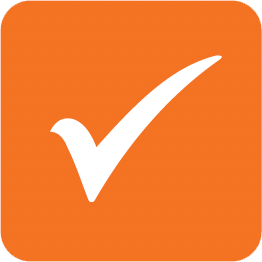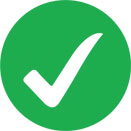 Preparing for Surgery
Preparing for Surgery
Pre-Op Testing & Medical Clearance
- Your health care team will let you know if any pre-op tests are needed.
- Medical clearance may be required if you have diabetes, heart or lung problems, or other health issues.
- Make sure your doctor knows which medications you are taking.
If any test is needed, your doctor’s office will order your required testing, and any additional tests you need prior to your surgery.
Bowel Prep Supplies & Directions
Supplies to Purchase
These prescriptions will be sent to your pharmacy prior to the surgery.
- GoLYTELY 4L bottle
- Oral antibiotics: Neomycin, Flagyl
Some patients will require an alternate bowel prep, e.g., those with diabetes, kidney or other chronic diseases, or those who are unable to tolerate this solution. Please confirm with your physician to ensure proper preparation.
The Day Before Surgery
- When you wake up
- You may eat a light breakfast, tea and toast, in the early morning.
- Start a clear liquid diet after. Clear liquids are those that you can see through.
- Make sure you drink at least 8 glasses of clear liquid today. Examples of clear liquids are water, plain tea and coffee, carbonated beverages, apple and white grape juice, clear broth, popsicles and gelatin
- Once you start the clear liquids, you cannot have any solid food.
- At 3 p.m.
- Please start drinking the 4L bottle of Golytely. Please ensure you finish drinking the bottle by the time you go to bed.
- At 7 p.m.
- Take 1,000 mg of the neomycin antibiotic pills (that’s two 500 mg pills).
- Take 1,000 mg of the Flagyl antibiotic pills (that’s two 500 mg pills).
- At 11 p.m.
- Take another 1,000 mg of the neomycin antibiotic pills (that’s two 500 mg pills).
- Take another 1,000 mg of the Flagyl antibiotic pills (that’s two 500 mg pills).
- Bowel prep tips
- Keep your GI prep medicine in the refrigerator.
- If it is cold, it won't taste as strong. If you don't like the taste, try drinking the medicine through a straw or licking a lemon or lime wedge before taking a sip.
- Stock your bathroom with entertainment (books, handheld games, etc.). To make the experience more comfortable, use soft wipes, unscented and perfume free, and dab dry rather than wipe dry. Consider using clear petroleum jelly around the anus after bowel movements to minimize irritation.
Examples of clear liquids:
- Water
- Fruit juices without pulp (e.g. apple juice, white grape juice)
- Clear broth or any flavor bouillon
- Gatorade, Powerade, Kool-Aid, or Crystal Light
- Jello
- Popsicles, ices, or sorbet
- Tea or black coffee (no milk, cream, or non-dairy creamers, sugar is OK)
 Preparing to go to the Hospital
Preparing to go to the Hospital
What to Bring to the Hospital
- A list of all your current medications, i.e.,
- Prescriptions and over-the-counter medications
- Vitamins
- Herbal supplements
- Dosage and frequency of all medications
- List of allergies (medications, latex, food, etc.)
What to Pack

- Personal toiletries (toothbrush, comb, soap, etc.)
- Slippers and bathrobe
- Reading glasses
- Magazines/books
- Loose fitting clothing for going home
- Notebook and pen to write questions or make notes

- Jewelry or other valuables
- Your medications from home
- Electrical appliances (i.e., hairdryers, other plug-in items)
You may wish to bring a phone charger and/or a music device with earphones.
 The Day of your Surgery
The Day of your Surgery
- On the day of your procedure, you may continue to drink clear liquids up to 2 hours before surgery. Make sure you don’t eat or drink anything within 2 hours of surgery.
- Do not eat anything today, this includes mints, gum, tobacco products or pills.
- Diabetic patients do not take your morning dose of insulin or anti-diabetic pills. Refer to your doctor's instructions about what medications to take.
- If you take medication for blood pressure or a heart condition, take your normal dose with a sip of water.
- You will be contacted by the team with location details and arrival time the day prior to your procedure.
 Post-Surgery: Expectations
Post-Surgery: Expectations
About Enhanced Recovery After Surgery (ERAS)
ERAS is a program to help you get better faster after your surgery. It’s important to do certain things before and after your surgery as part of the ERAS program.
Before your surgery, make sure you’re ready by:
- Exercising and following a healthy diet. This will help get your body ready for your surgery.
After your surgery, help yourself recover more quickly by:
- Starting to move around as soon as you can. The sooner you get out of bed and walk, the quicker you can get back to your usual activities.
Pain Management
We provide multi-modal pain control with minimal narcotics to help you recover faster.
What to Expect After Surgery
- Immediately after surgery, you will be allowed to drink any clear liquids.
- Liquids and solids will be introduced to your diet as you recover.
- After anesthesia, deep breathing is an important part of your recovery. You will be given an incentive spirometer to encourage deep breathing. It is recommended to use this 10 times per hour when you are awake.
- Sitting up and walking (as tolerated) is recommended.
- You are expected to get out of bed with assistance within 12 hours after surgery.
- Slowly increasing your activity (as your pain tolerance allows) is important for your recovery. If you are experiencing difficulty sitting up in a chair, getting out of bed independently, or walking, please notify your medical team.
- The team recommends that you plan activities in coordination with pain medication administration. For example, wait to take a walk around the floor until after receiving pain medication if pain is a limitation.
- You will be seen twice daily by members of the colorectal team.
 Post-Surgery / Discharge
Post-Surgery / Discharge
Going Home
Your unit’s social worker will review the following with you, and address any concerns:- Do I need home or rehabilitation services?
- Will my insurance pay for these services?
- How will I get my prescriptions filled?
- If you are known to a home care agency prior to admission, please provide the name and contact information.
Other things to consider:
- Ask your physician if you will be on a special diet.
- Call your doctor’s office the day after you get home if there isn’t a follow-up appointment scheduled.
Home Instructions
- No heavy lifting (10-pound limit)
- Climbing stairs is allowed
- No gym workouts – only walking until cleared by your surgeon
- No driving until cleared by your surgeon
- Maintain a low-fiber diet until advised by your surgeon
- If you are allowed to shower, pat dry your surgical area
- No baths, no swimming
Please review documents given to you at discharge to review a detailed explanation of what you may experience, and the next steps that should be taken.
Nutrition
You are expected to stay on a low fiber diet for 4 weeks after surgery.
- For example, no raw fruits or vegetables.
Once You Are Home
- If you have any questions or concerns once you return home please call your doctor’s office at 305-243-9110, option 4.
- If you are having any issues with your home health agency, please call 305-689-5512.
- Remember: Your surgeon’s instructions are tailored specifically to you, so they supersede any material discussed in the document.